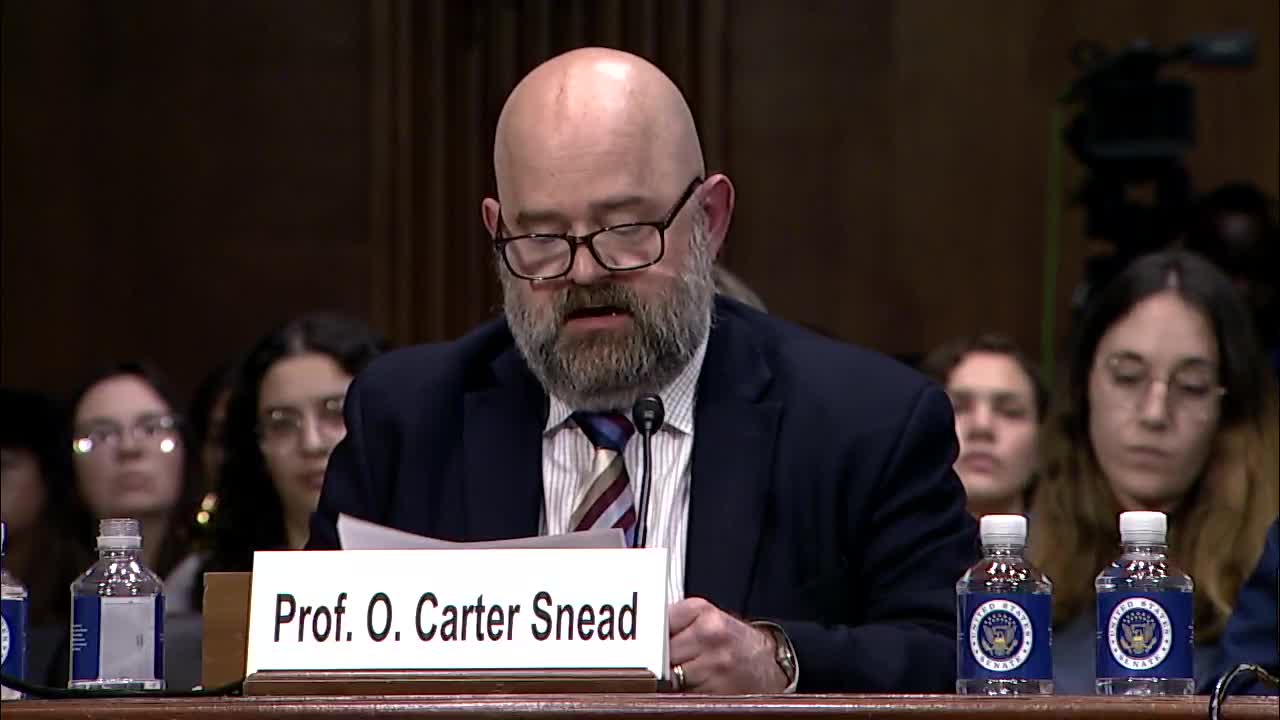Abortion access crisis sparks interstate travel surge
June 12, 2024 | Judiciary: Senate Committee, Standing Committees - House & Senate, Congressional Hearings Compilation

This article was created by AI summarizing key points discussed. AI makes mistakes, so for full details and context, please refer to the video of the full meeting. Please report any errors so we can fix them. Report an error »

During a recent government meeting, discussions centered on the evolving landscape of abortion access in the United States, particularly in the wake of the Supreme Court's Dobbs decision. Key testimonies highlighted the stark contrasts in abortion laws across states, with 14 states implementing total bans and many others imposing significant restrictions. This has led to a notable increase in individuals traveling across state lines for abortion services, with an estimated 170,000 people doing so in 2023—more than double the number from previous years.
Isaac Matosimit, a data scientist from the Guttmacher Institute, emphasized the challenges posed by this fragmented legal environment, which disproportionately affects marginalized groups, including people of color and those with limited economic resources. He noted that many individuals face substantial financial and logistical barriers when seeking care, often requiring support from abortion funds and community networks to navigate the complexities of accessing services.
In contrast, Dr. Skop, a Texas-based obstetrician, defended the state's abortion laws, asserting that they do not hinder necessary medical care for life-threatening conditions. She argued that Texas law allows physicians to exercise their medical judgment in emergencies and criticized what she described as misinformation surrounding pro-life legislation. Dr. Skop also pointed to the existence of numerous pregnancy centers that provide support to women, suggesting that many women who undergo abortions do so under pressure rather than by choice.
The meeting underscored the ongoing debate over abortion rights and access, with participants calling for a reimagining of the conversation to focus on the needs of mothers and children. As states continue to navigate this contentious issue, the implications for reproductive health and rights remain significant, highlighting the urgent need for comprehensive support systems for individuals facing unplanned pregnancies.
Isaac Matosimit, a data scientist from the Guttmacher Institute, emphasized the challenges posed by this fragmented legal environment, which disproportionately affects marginalized groups, including people of color and those with limited economic resources. He noted that many individuals face substantial financial and logistical barriers when seeking care, often requiring support from abortion funds and community networks to navigate the complexities of accessing services.
In contrast, Dr. Skop, a Texas-based obstetrician, defended the state's abortion laws, asserting that they do not hinder necessary medical care for life-threatening conditions. She argued that Texas law allows physicians to exercise their medical judgment in emergencies and criticized what she described as misinformation surrounding pro-life legislation. Dr. Skop also pointed to the existence of numerous pregnancy centers that provide support to women, suggesting that many women who undergo abortions do so under pressure rather than by choice.
The meeting underscored the ongoing debate over abortion rights and access, with participants calling for a reimagining of the conversation to focus on the needs of mothers and children. As states continue to navigate this contentious issue, the implications for reproductive health and rights remain significant, highlighting the urgent need for comprehensive support systems for individuals facing unplanned pregnancies.
View full meeting
This article is based on a recent meeting—watch the full video and explore the complete transcript for deeper insights into the discussion.
View full meeting